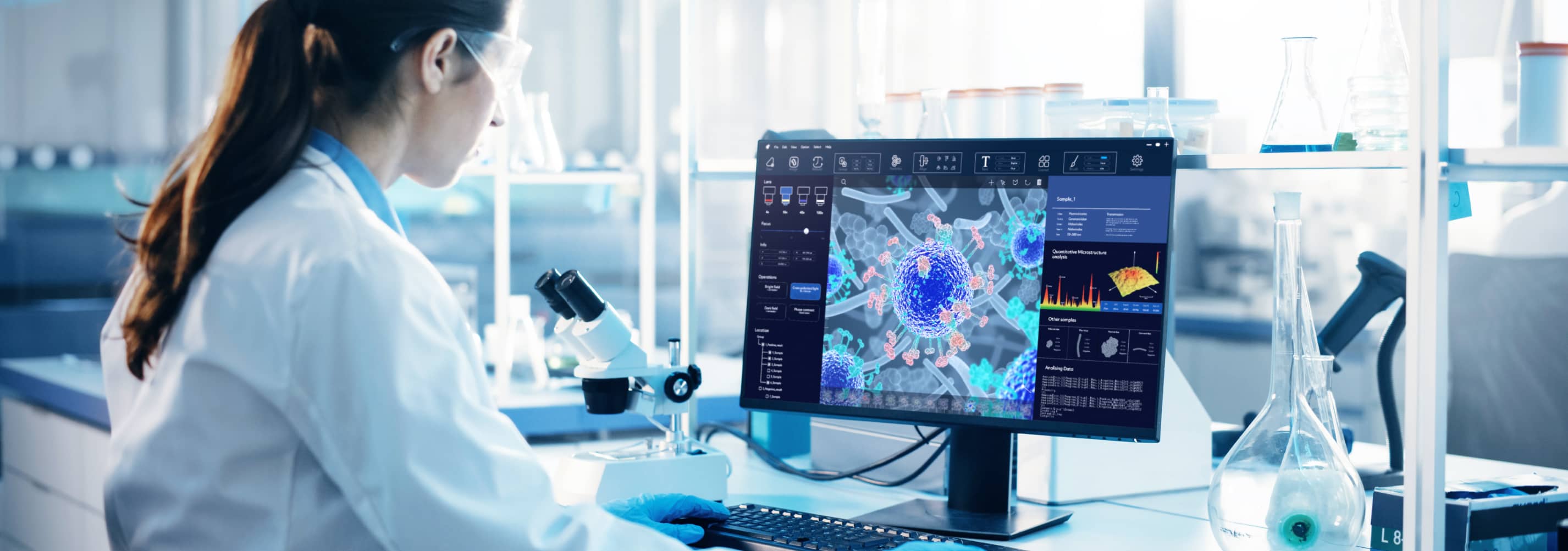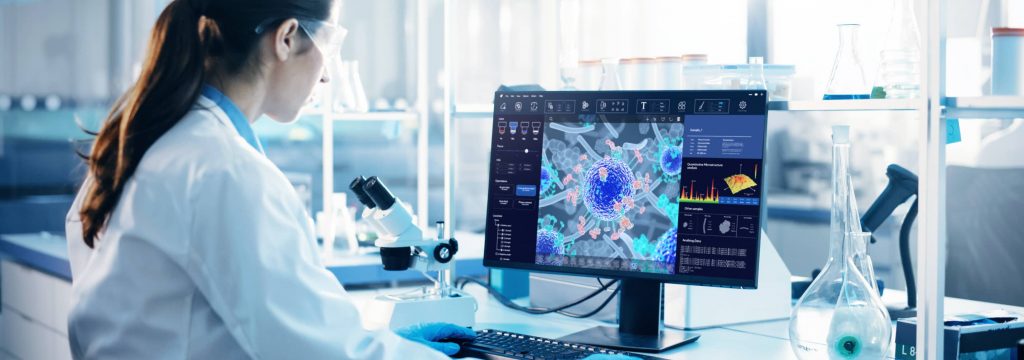
The healthcare sector is no different—particularly in the wake of the global pandemic, during which rapid and remote healthcare practices have had to take shape almost overnight. Healthcare software development services and data science solutions have become an integral part of the industry today. In fact, data science in healthcare represents arguably one of the most critical and long-overdue sector revolutions of modern times.
With data science, healthcare institutions can harness analytics to bring about faster and far more accurate diagnoses while providing treatments that carry a higher efficacy and lower risk to patients’ health. Data science can optimise every aspect of the caregiving model, from medical imaging to drug discovery and genomics.
And with over a billion clinical documents being produced every year in the US alone, there’s a deep mine of healthcare data out there to be drilled. Here, we take a look at six of the key trends that are set to drive the implementation of data science services in healthcare.
Six areas where data science in healthcare can make the biggest impact
1. Data-driven clinical decision making
Predictive analytics is a powerful ally for medical professionals, allowing them to gain insights into things like treatment effectiveness weeks or even months earlier than was previously possible. Modern data science platforms can greatly speed up the decision-making process for clinicians, allowing them to switch an ineffective course of treatment for one that’s better suited to a patient’s needs.
This is particularly crucial for promoting better patient outcomes in terms of the treatment of chronic illnesses such as cancer and heart disease. It’s also significantly more cost-effective than the traditional one-size-fits-all trial and error model.
And predictive analytics becomes even more powerful is when combined with machine learning models that take into account the implications of social factors on health and wellbeing. For example, when determining an individual’s risk of cardiovascular disease, researchers have found that the effectiveness of prediction and treatment improves when a machine learning model considers things such as socioeconomic and environmental circumstances.
2. Medical imaging
One of the most promising applications for data science in healthcare is its ability to enhance medical imagining. Currently, there are various imagining methods used to detect different medical conditions, including X-ray, MRI scans, mammography, and so on, and more techniques are being developed.
With data science, healthcare institutions can harness the power of deep-learning-based algorithms to improve the accuracy of imaging by feeding the algorithm previous examples from which it can learn and improve. This, in turn, enables healthcare professionals to prescribe the most appropriate course of treatment.
With data science, healthcare organisations can rapidly and accurately detect conditions such as cancer, arterial complications and organ issues, thus enabling them to treat the condition before it becomes a much bigger and more expensive problem.
3. Genomics and genetics
Genomics, genetics and digital biology are the frontier fields of medicine, and data science is allowing healthcare institutions to deliver tailor-made treatment solutions based on patients’ individual genetic makeup. Data science is helping healthcare professionals integrate multiple strands of data with genetic information to gain crucial insights into the implications of one’s DNA on disease development and drug response. In particular, genetic predisposition to certain diseases is an area of healthcare for which data science holds huge promise.
4. Drug discovery
The pharmaceutical branch of healthcare is one of the most expensive and time-consuming to facilitate. Still, the digital transformation of the pharma sector is among key priorities for the industry right now. Data science has the power to completely reinvent the methods used to find new treatments, particularly when combined with AI and machine learning algorithms. Together, they hold many benefits for this field, including:
- boosting the speed and momentum of drug trials
- safer screening
- using AI to develop new protocols around drug safety
- using Master Clinical Trial Protocols (MAPs) to modernise, cost-optimise and boost the efficiency of clinical trials
5. Remote patient monitoring
The pandemic spotlighted the value of remote patient monitoring like never before. But telehealthcare is here to stay, as on-demand services become the norm across the breadth of industries. There are multiple benefits to enabling remote patient monitoring using IoT, in the form of wearable tech, and data science, including, but not limited to:
- better patient experiences
- improved health outcomes
- matching clinicians to the most appropriate patients
- providing healthcare access to those in remote locations
- eliminating logistical challenges, especially for disabled or infirm patients
Patients can utilise Bluetooth-enabled wearables to record key health indicators such as blood sugar, blood pressure, and heart rate, connecting to devices such as smartphones and sending the data directly to clinicians for analysis, diagnosis and treatment.
6. Disease tracking and prevention
Another compelling use case for data science in healthcare, highlighted, again, by the pandemic, is the ability of data to help medical bodies track and prevent disease. Particularly in the field of infectious diseases, such as Covid-19, data science is helping medical analysts understand how pathogens spread by surveilling outbreaks in real time and using the gathered data to create a forecast for future spread.
Forecast metrics include daily/weekly/monthly case counts, peak timing, peak number, outbreak duration and magnitude. Data can then be broken down into geographical regions to predict spread by area.
Furthermore, where outbreak data used to be confined to what could be gathered from healthcare providers, data scientists can now look to other touchpoints to help them track and predict spread. These include social media and search engine enquiries, environmental data, clinical surveillance, and more.
Summary
In an increasingly data-driven world, the healthcare industry can no longer afford to delay implementing data science. By using data science to make sense of widely dispersed and oftentimes unstructured patient information, healthcare institutions can gain a holistic view of an individual’s health, identify diseases much more quickly and tailor treatment to best fit a specific patient’s needs—including facilitating access to medical care where it previously wasn’t available. Furthermore, medical organisations can streamline their operations and drastically cut the cost of caregiving in return.
Ready to revolutionise your healthcare organisation? Find out how ELEKS’ data science expertise could help. Contact us today!
